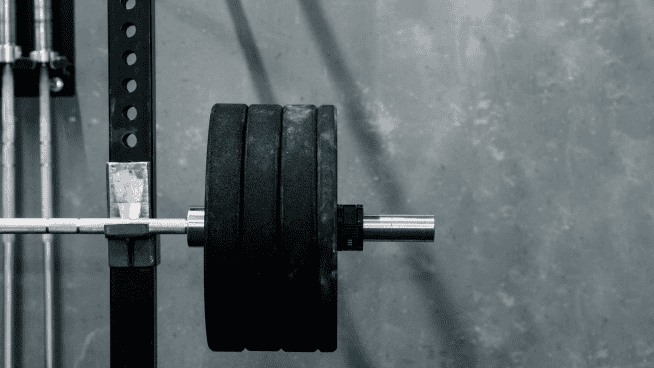4 Things You Should Know About Your Personal Trainer
![]()
A good personal trainer can help you reach your fitness goals faster and more safely. But unlike doctors, nurses or any other professional who deals with the human body, personal trainers don’t need to meet any legal requirements in order to perform their work. Which is a terrible oversight, since an unqualified fitness trainer can outright kill people, or place them in jeopardy by practicing unsafe methods or recommending terrible dietary strategies.
Here are four key actions that anyone interested in working with a personal trainer should take, regardless of their physical condition.
1. Ask to See Their Certifications

This is the most important step. Every trainer should be certified by a qualified organization. The National Commission for Certifying Agencies (NCCA) oversees organizations that certify trainers. Among the most respected organizations are the American Council of Exercise (ACE), the National Strength and Conditioning Association (NCSA), the National Academy of Sports Medicine (NASM) and the American College of Sports Medicine (ACSM). You can find a complete list of NCCA credentialed organizations here.
Always ask a prospective personal trainer to see his or her certifications. If they show you but you still feel suspicious, contact the organization directly and confirm that it has the person on file. There is no reason to give a trainer any degree of control over your body without doing due diligence.
2. Check Their References

If you’ve determined that a trainer’s certification is legit, you still need to know whether they are good at their job. Though there are many online resources, such as FreeBackgroundCheck.org, that can help you run a full background check on almost anybody, you can learn much more by speaking to the trainer’s current or former clients. Doing so will give you a better idea of what areas the trainer specializes in and what kinds of athletes he or she normally work with. The references should largely match up with you in terms of your goals and give you an idea of how the trainer operates.
3. Find Out What They Know About The Latest Exercise Ideas?

There’s always a new training idea or methodology. Many are silly fads, but some can be beneficial. You should always question a prospective trainer about the latest and (supposedly) greatest notions in training—for two reasons. First, you want to know whether the trainer is staying informed. They don’t need to be using every newfangled tool or technique. But they should know it exists.
Second, it can tell you how motivated the trainer is to ensure that you get fit. A personal trainer who insists that he or she knows the One Right Way and never deviates from it is not a good trainer. They’re just following a one-size-fits-all template instead of looking out for your personal well being.
4. Determine What They Think About Your Diet
If you are committed to changing your diet, to either gain or lose weight, a good trainer should have some ideas for you. If his or her suggestions seem reasonable, like keeping a food journal to track calorie consumption, count that as a good thing. It means the person wants to learn more about you. But if he or she hands you a sheet prescribing dramatic dietary changes, tread carefully.
[cf]skyword_tracking_tag[/cf]RECOMMENDED FOR YOU
MOST POPULAR
4 Things You Should Know About Your Personal Trainer
![]()
A good personal trainer can help you reach your fitness goals faster and more safely. But unlike doctors, nurses or any other professional who deals with the human body, personal trainers don’t need to meet any legal requirements in order to perform their work. Which is a terrible oversight, since an unqualified fitness trainer can outright kill people, or place them in jeopardy by practicing unsafe methods or recommending terrible dietary strategies.
Here are four key actions that anyone interested in working with a personal trainer should take, regardless of their physical condition.
1. Ask to See Their Certifications

This is the most important step. Every trainer should be certified by a qualified organization. The National Commission for Certifying Agencies (NCCA) oversees organizations that certify trainers. Among the most respected organizations are the American Council of Exercise (ACE), the National Strength and Conditioning Association (NCSA), the National Academy of Sports Medicine (NASM) and the American College of Sports Medicine (ACSM). You can find a complete list of NCCA credentialed organizations here.
Always ask a prospective personal trainer to see his or her certifications. If they show you but you still feel suspicious, contact the organization directly and confirm that it has the person on file. There is no reason to give a trainer any degree of control over your body without doing due diligence.
2. Check Their References

If you’ve determined that a trainer’s certification is legit, you still need to know whether they are good at their job. Though there are many online resources, such as FreeBackgroundCheck.org, that can help you run a full background check on almost anybody, you can learn much more by speaking to the trainer’s current or former clients. Doing so will give you a better idea of what areas the trainer specializes in and what kinds of athletes he or she normally work with. The references should largely match up with you in terms of your goals and give you an idea of how the trainer operates.
3. Find Out What They Know About The Latest Exercise Ideas?

There’s always a new training idea or methodology. Many are silly fads, but some can be beneficial. You should always question a prospective trainer about the latest and (supposedly) greatest notions in training—for two reasons. First, you want to know whether the trainer is staying informed. They don’t need to be using every newfangled tool or technique. But they should know it exists.
Second, it can tell you how motivated the trainer is to ensure that you get fit. A personal trainer who insists that he or she knows the One Right Way and never deviates from it is not a good trainer. They’re just following a one-size-fits-all template instead of looking out for your personal well being.
4. Determine What They Think About Your Diet
If you are committed to changing your diet, to either gain or lose weight, a good trainer should have some ideas for you. If his or her suggestions seem reasonable, like keeping a food journal to track calorie consumption, count that as a good thing. It means the person wants to learn more about you. But if he or she hands you a sheet prescribing dramatic dietary changes, tread carefully.
[cf]skyword_tracking_tag[/cf]RECOMMENDED FOR YOU
Create A Free Recruiting Profile Today!
CaptainU helps athletes & parents not only be proactive but also to manage and take control of their entire recruiting journey.











